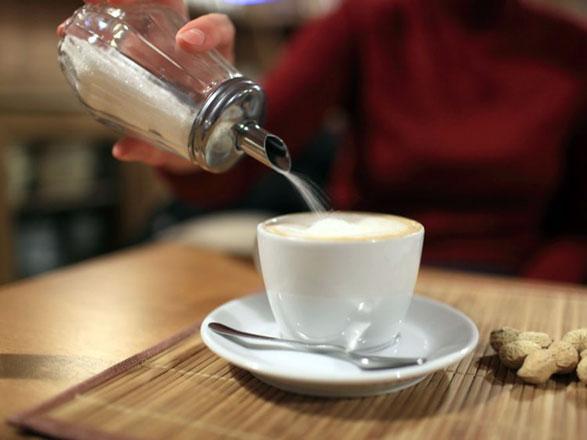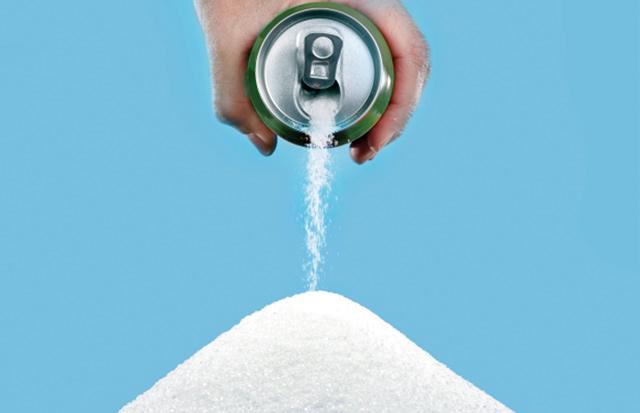You are here
Little evidence that non-sugar sweeteners lead to improved health
By Reuters - Jan 08,2019 - Last updated at Jan 08,2019

AFP photo
A review of research on artificial and natural sweeteners commonly used as alternatives to sugar failed to find strong evidence they provide significant health benefits, but also found no harm from using them.
The analysis, published in The BMJ, was commissioned by the World Health Organisation with the aim of developing guidelines on the use of non-sugar sweeteners such as aspartame and stevia.
“Unfortunately, we don’t have sufficient data to assess fully the potential benefits and harms of non-sugar sweeteners,” said senior researcher Joerg Meerpohl, director of the Institute for Evidence in Medicine at the University of Freiburg in Germany. “While a substantial number of studies have been published, there was not much consistency in relation to the specific intervention/exposure evaluated and which outcomes were measured when and how.”
Moreover, Meerpohl said in an e-mail, most of the studies were small or brief. “Unfortunately, we need more and better research on the topic,” he added.
Meerpohl and colleagues gathered research that explored the impact of artificial sweeteners on important health outcomes like weight and blood sugar levels. They eventually settled on 56 studies, 35 of which were not clinical trials.
Some of the small studies suggested non-sugar sweeteners might slightly improve body mass index (BMI, a measure of weight relative to height) and blood sugar.
Data on 318 participants in four randomised controlled trials showed that daily energy intake was 254 calories lower in those who consumed artificial sweeteners compared to those who consumed sugar. And a study of overweight and obese individuals who were not trying to lose weight found that the artificial sweeteners were associated with a loss of nearly 4.5 lbs.
But artificial sweeteners did not seem to help overweight and obese adults and children who actually were trying to lose weight.
Two studies with a total of 174 participants found a very small improvement in blood sugar with use of non-sugar sweeteners.
One limitation is that the researchers left out studies that did not name the sweetener being tested. Another issue, pointed out in an editorial accompanying the new report, was that Meerpohl and his colleagues lumped together studies comparing artificial sweeteners to non-caloric placebos with those comparing artificial sweeteners to sugar.
“In experimental trials, the intended effects of [non-sugar sweeteners] are expected to differ depending on the energy content of the comparator,” writes Vasanti Malik, a nutrition researcher at Harvard’s T.H. Chan School of Public Health in Boston. Meerpohl and his colleagues “did not differentiate trials according to the nature of the comparator. Among included studies, benefits on blood pressure and body weight were observed when [non-sugar sweeteners] were compared with sugars rather than non-calorie placebos”.
The new report shows that artificial sweeteners, in and of themselves, do not lead to improved health outcomes, said Michele Pfarr, a clinical nutrition manager at the Magee-Womens Hospital at the University of Pittsburgh Medical Centre in Pennsylvania. What’s important when you are trying to lose weight, Pfarr said, “is a focus on overall calorie intake and eating nutrient-rich foods like fruits and vegetables, along with low-fat dairy, whole grains and lean meat”.
Sodas containing artificial sweeteners may aid in weight loss, “only if you’re using them to replace full-calorie drinks”, Pfarr said. “But if you see this as an opportunity to eat other foods, you’re not going to realise that impact.”
“For the vast majority of people, there probably aren’t any health benefits to non-sugar sweeteners,” said Aziz Alkatib, a cardiologist at Detroit Medical Centre’s Harper Hospital in Michigan. “For individuals who consume excessive amounts of sugar, particularly in the form of sugar-sweetened beverages, perhaps a non-calorie sweetener is a less health-damaging alternative.”
A better strategy for weight loss is to switch to water, Alkatib said in an email. “One study showed that switching from diet beverages to water helped women lose weight,” he explained. “By consuming these sweeteners, you avoid confronting a major roadblock to healthy eating: sugar addiction.”
Related Articles
The maker of America’s top sugar brand Domino Sugar is launching its first no-calorie “natural” sweetener extracted from the stevia plant in Paraguay, the strongest sign yet that the upstart product is threatening to eat into raw-sugar demand.
Could too much sugar be deadly? The biggest US study of its kind suggests the answer is yes, at least when it comes to fatal heart problems.
People who drink lots of sugar-sweetened soda and fruit juices may be more likely to develop chronic kidney disease than those who don’t, a















